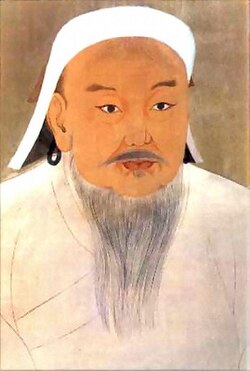Planning your researchPlanning your research
Items to include in your research plan:
- All of your family surnames
- Places where your where your ancestors lived
- Search for your family surnames in record collections that are specific to nobility
Search GeniSearch Geni
One useful tool for searching well known royal figures is Geni. Once set up, you can connect your Geni profile to the Geni world tree and look for connections to royalty.
- Log in to your Geni account and visit the world tree page.
- Check the Statistics box on the right. If the number of people you’re connected to is in the millions, that means you’re connected to the world family tree.
- Use the search box at the top of the page to look for known royalty. On their profile page, you’ll see a tab that allows you to check your connection to that figure, and you’ll be able to see the relationship path if one exists.
A word of caution, as with any public tree you view, you cannot be certain of a genealogical connection without verification. The Geni world tree was built by other users, not professional researchers, and there may be errors. You’ll have to verify each step of the relationship path to ensure that you are, indeed, related to the figure as reported.
British royal surnamesBritish royal surnames
Follow the documentsFollow the documents
Many countries didn't begin documenting their residents until the late Middle Ages or early Renaissance period. Royal families however, due to their status and wealth, often left a paper trail in places other than regular church or civil records. Land and ownership records, and other historical documents may provide clues to trace your royal connection back much further. Census records might help you associate your ancestors with royal residences. Don’t dismiss searching what may seem an unlikely historical record collection, you never know what clues you’ll gather in unexpected places.
Non-European royaltyNon-European royalty

If your ancestral roots lie outside of the European countries, such as central or east Asia, South America, or North Africa, you could be related to such figures as Genghis Khan, King Tutankhamun, or one of a number of Chinese emperors.
A genetic study published in 2003 found that one in every 200 men all over the world are directly descended from Genghis Khan, the 12th-century Mongolian emperor who founded what became the largest contiguous empire in history.[1] Scientists at iGENEA, a DNA genealogy center based in Zurich, reconstructed King Tut’s DNA and found that half of all men living in western Europe are related to him — including 70% of men in Great Britain![2]
Royal ancestry is very likelyRoyal ancestry is very likely
Mathematically speaking it’s actually pretty unlikely that you don’t have royal ancestry. Each generation you document doubles the number of ancestors you have; 10 generations equals 1,024 ancestors, and 20 generations equals 1,048,576! Yale statistician Joseph Chang demonstrated that when you trace ancestral lines back far enough (for example, 32 generations or 900 years), you’ll find that everyone alive today has at least one common ancestor.[3] He also showed that in Europe, you only have to go back 600 years to reach that point.
Given the evidence there is a high likelihood that, if you go back far enough, at least one of the millions of ancestors you had in a given generation was royal or descended from royalty.
See alsoSee also
Explore more about royal ancestryExplore more about royal ancestry
- Old Coronation Day Ads: How Companies Leveraged Previous Coronations to Promote Products at MyHeritage Blog
- Bidding Farewell to Elizabeth II, the World's Favorite Queen at MyHeritage Blog
- Prince Philip's Important Contribution to DNA Genealogy at MyHeritage Blog
- Metes & Bounds Land Plats Solve Genealogical Problems at Legacy Family Tree Webinars
- The Tutankhamun DNA Project at iGENEA
- Recent Common Ancestors Of All Present-Day Individuals at Yale University
- Molecular Genealogy of a Mongol Queen’s Family and Her Possible Kinship with Genghis Khan at National Library of Medicine
- Britian's King George V changes royal surname at History.com
- 10 Last Names That Indicate You May Be Related to a Royalat Top10.com



